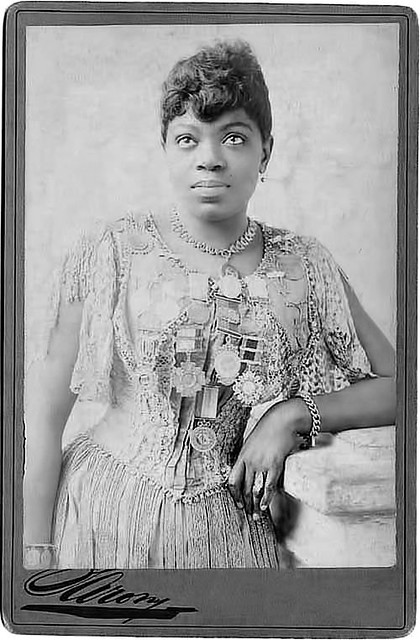Long before Beyoncé dazzled the world or Aretha Franklin demanded R-E-S-P-E-C-T, there was Sissieretta Jones, a vocal powerhouse who shattered racial barriers and redefined what was possible for Black artists in classical music.
Imagine stepping onto the hallowed stage of Carnegie Hall at a time when segregation and racial barriers were the norm. That’s exactly what Sissieretta Jones did in 1892, becoming the first African American to perform at New York’s famed venue.
Born in 1869 in Portsmouth, Virginia, to a pastor father and a mother who sang in their church choir, Jones’s prodigious talent catapulted her from humble beginnings to international stardom, earning her a place in history as one of the most groundbreaking performers of her era.

By the 1890s, Jones had risen to global fame. She didn’t limit her performances to the United States. She traveled throughout Europe, South America, Asia, Australia, and even certain regions of Africa. Her concerts garnered such acclaim that she frequently shared the spotlight with different musical groups and even participated in major events such as the “Grand African Jubilee” at Madison Square Garden in April 1892.
It didn’t take long for her strong soprano to capture the interest of white America, a significant achievement during the late 19th century. Reviewers, amazed by her vocal range and clarity, referred to her as “The Black Patti,” referencing the esteemed Italian opera singer Adelina Patti, one of the most honored vocalists at that time.
Among the impressive accomplishments of performing at Carnegie Hall and filling venues around the globe, Jones had the honor of singing for President Benjamin Harrison in the same year. During a period when being Black in America often meant dealing with the overshadowing effects of prejudice, Jones’ remarkable voice was so exceptional that it rose above the racial constraints of her time.

As the classical music world reckons with its history of racial inequity during Black History Month, Sissieretta Jones’s journey serves as both inspiration and a call to action. Her voice may have fallen silent, but her legacy sings on: a testament to resilience, artistry, and the unyielding power of breaking barriers.
